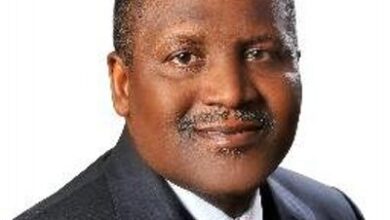Political elections have been an integral part of human societies for centuries, serving as the primary means through which citizens select their representatives and leaders. The history of political elections is deeply intertwined with the evolution of democratic systems, the spread of political ideologies, and the continual struggle for equality, justice, and participation in governance. From the ancient Greek city-states to modern democratic nations, the nature, processes, and significance of elections have evolved considerably.
Early Elections in Ancient Civilizations
The earliest recorded forms of elections can be traced back to ancient Greece, particularly in Athens around the 5th century BCE. Athens is often regarded as the birthplace of democracy, and its electoral system allowed free male citizens to vote on important state matters. However, only a limited group of people had the right to participate, excluding women, slaves, and non-citizens. This early form of democracy was based on direct participation, where citizens assembled in the Agora to vote on various political decisions. While Athens provided the foundation for democratic elections, the concept was not widespread in the ancient world.
In ancient Rome, elections were more structured, and Roman citizens voted to select magistrates and other public officials. The Roman Republic, which existed from 509 BCE until 27 BCE, relied on a form of mixed government where elections played a role in ensuring the balance of power among different branches of government. However, like Athens, Roman elections were limited by class and citizenship, and the poor and non-landowners had limited access to the political system.
The Rise of Representative Government
During the medieval period, political elections were not widely practiced, as monarchs ruled most European nations. The notion of divine right and the hereditary transmission of power prevailed. However, the seeds of representative democracy were sown in various European parliamentary systems, especially in England. The Magna Carta (1215) and the subsequent development of the English Parliament set the stage for the gradual shift from absolute monarchy to constitutional monarchy and the establishment of regular elections for certain offices, including the Parliament.
By the time of the English Civil War in the 17th century and the Glorious Revolution of 1688, the idea of elected representatives began to gain more prominence. The notion that citizens should have a say in the selection of their rulers and lawmakers spread throughout Europe and the Americas, particularly in the context of the Enlightenment’s emphasis on reason, individual rights, and the social contract.
The American Revolution and the Birth of Modern Elections
The American Revolution (1775-1783) played a pivotal role in the history of political elections. The United States of America was founded on the ideals of popular sovereignty and individual rights. The U.S. Constitution, adopted in 1787, established a system of representative democracy with regular elections for the presidency, Congress, and local offices. The first presidential election in 1789, in which George Washington was unanimously elected, marked a significant moment in the history of electoral politics. For the first time in modern history, a large, diverse republic embraced the idea that its government should be chosen by the people.
However, the early years of U.S. elections were not without controversy. Although the United States constitution enshrined the principle of universal suffrage for white male landowners, the broader inclusion of all citizens, including women, African Americans, and Native Americans, took a long time. The abolition of slavery and the passage of the 15th Amendment in 1870, granting African American men the right to vote, and the passage of the 19th Amendment in 1920, granting women the right to vote, were critical milestones in expanding suffrage.
The Expansion of Universal Suffrage
The 19th and early 20th centuries saw significant changes in the electoral systems of many countries. The expansion of voting rights, particularly the universal franchise, became a key feature of the modern democratic state. Movements for women’s suffrage, civil rights, and workers’ rights contributed to the expansion of electoral participation.
In the United States, the civil rights movement of the 1960s, culminating in the passage of the Voting Rights Act of 1965, sought to eliminate discriminatory practices that disenfranchised African American voters, particularly in the South. This act was instrumental in ensuring that all citizens, regardless of race or ethnicity, had the opportunity to vote.
Globally, other countries followed suit. In Britain, the Reform Acts of the 19th century gradually extended the right to vote to a broader segment of the population. In France, after the French Revolution of 1789, the principle of universal suffrage was established, although it was initially limited and then later expanded.
Modern Elections and Challenges
Today, political elections are fundamental to the functioning of most democratic nations. Elections determine not only the leadership of a country but also the direction of national policies, the structure of governance, and the protection of rights. Modern elections are characterized by a variety of voting systems, including direct elections, proportional representation, and mixed electoral systems. The advent of electronic voting and online platforms is reshaping how elections are conducted, though they have also raised concerns about security, privacy, and voter manipulation.
In the United States, the presidential election cycle remains one of the most scrutinized in the world. The two-party system, though occasionally challenged by third-party movements, has become entrenched in American politics. The Electoral College system, however, has been a subject of debate, with critics arguing that it disproportionately amplifies the votes of smaller states.
Internationally, elections have become a battleground for various political ideologies. Democratic elections are now seen as a universal ideal, though many countries still struggle with challenges such as voter suppression, election fraud, and political instability. In some authoritarian regimes, elections are held to give the illusion of legitimacy, but they are often manipulated to ensure that the ruling party remains in power.
Political elections have come a long way from their early origins in ancient Greece and Rome to the complex, modern systems in place today. Elections have expanded from being a privilege for a select few to a right for millions of people around the world. While significant progress has been made, challenges remain in ensuring that all individuals can participate freely and fairly. The history of political elections is a testament to the ongoing struggle for justice, equality, and the belief that government should be accountable to the people it serves. As political systems continue to evolve, so too will the processes and significance of elections, which remain at the heart of democratic governance.





